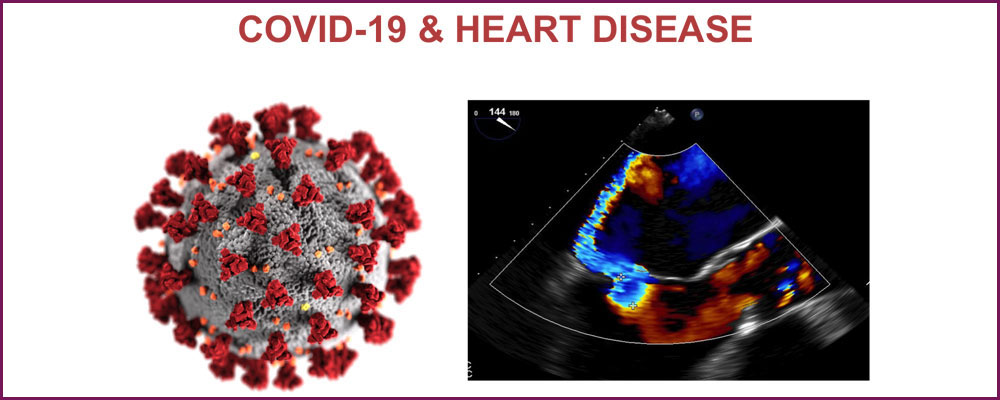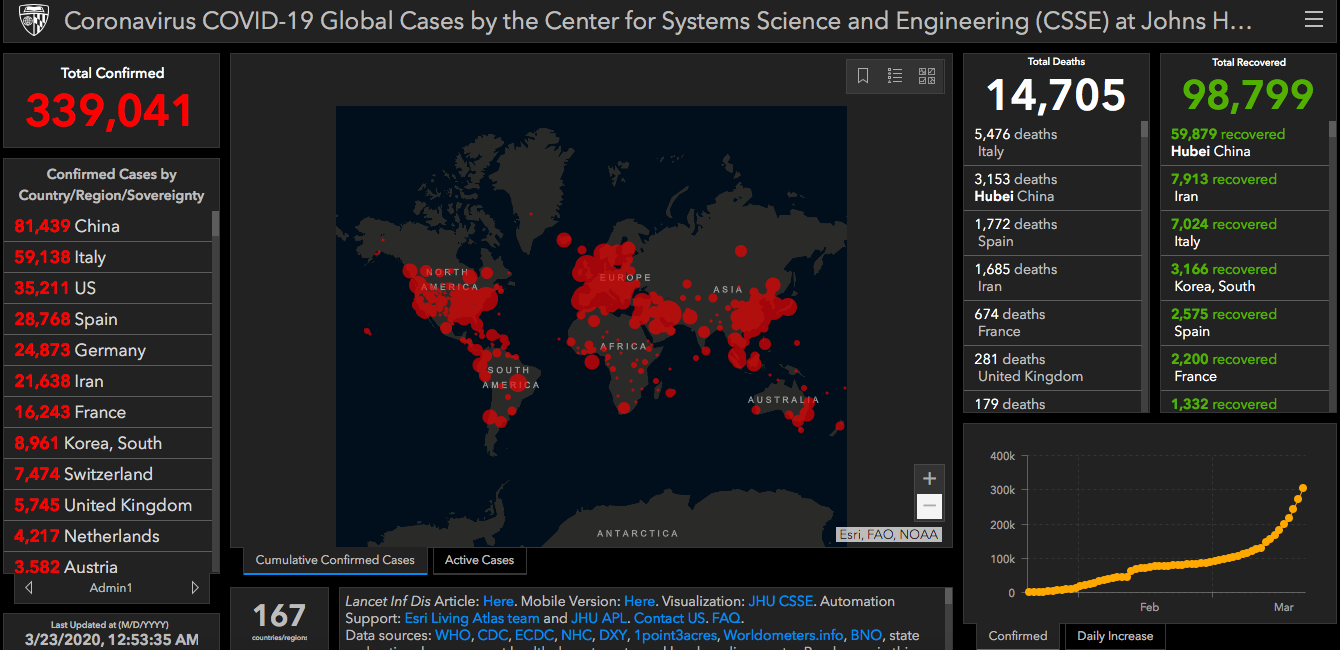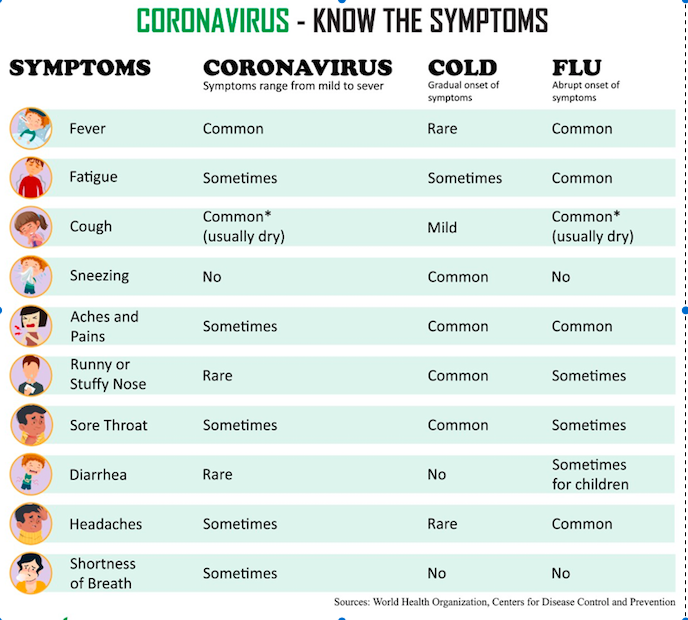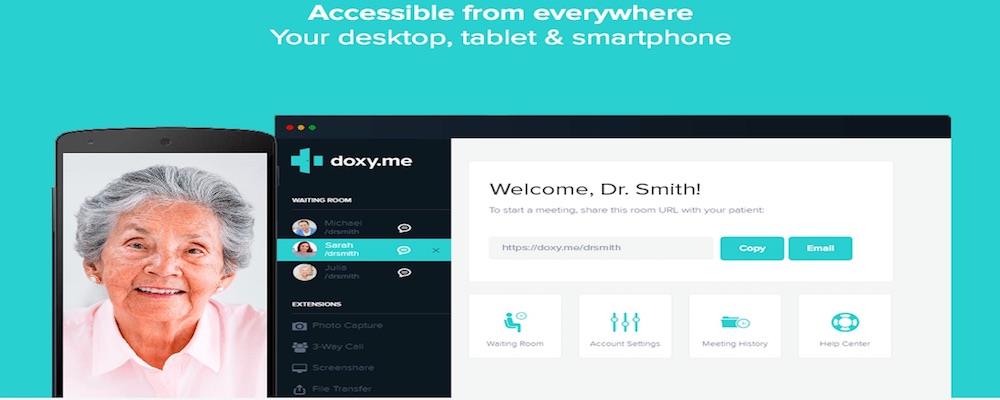COVID-19 and Heart Disease

Covid-19 spread: In just <1 month, novel coronavirus COVID-19 has spread exponentially to numbers that are unimaginable. https://coronavirus.jhu.edu/map.html
As of now, (March 22, 2020) the worldwide number have increased the total confirmed cases to 328,275 with total deaths to ~14,000. Total number of confirmed cases currently in United States (as of March 22,2020) is 31,000.
Inactuality, there are more cases than what is reported for few reasons:
1) inadequate testing for affected individuals (eg: United Kingdom), sub-clinical infection that has not been tested (eg: rest of the states vs. New jersey/New york who have tested more individuals due to drive-by testing), 3) institutions/countries that have poor infrastructure or other reasons to under-report; (eg: Russia).

More detailed information about Coronavirus Disease 2019 (COVID-19) can be accessed by going on : https://www.cdc.gov/coronavirus/2019-ncov/about/index.html
The new virus was first reported late December in China. As of March 22, it had affected more than 100 countries, including the United States.
The main symptoms of the disease are :
- Fever
- Cough
- Shortness of breath

Who is at higher risk of developing complications:
For most people—80% of cases—the illness is mild and recover without intensive medical intervention. However, the virus can cause severe illness with complications such as pneumonia, organ failure, and death.
According to the Centers for Disease Control and Prevention (CDC), those who have a higher chance of getting very sick include people who:
- Are older than 60—people 80 and older are at highest risk
- Have heart disease
- Have lung disease
Case fatality rates for co-morbid patients are higher than the average population :
- Cancer: 5.6%
- Hypertension:6.0%
- Chronic respiratory disease: 6.3% o Diabetes:7.3%
- Cardiovascular disease: 10.5%
Patients with underlying health conditions, such as cardiovascular disease, high blood pressure, diabetes, or cancer, are at greater risk of death from COVID-19. Cardiology associations have not detailed what kind of underlying heart disease puts a patient of a higher risk. Accurate research data is not currently available. Even in patients with hypertension, the data may be skewed due to age. These recommendations are based on expert opinion. I am unable to provide personalized medical advice without knowledge of your medical history. I would consider high risk cardiac patients as the ones with heart failure or who are receiving immunosuppression because they have a heart transplant or other immunological condition. Patients with stable angina or multivessel coronary artery disease on multiple medications should also be considered at an increased risk of severe illness if they develop COVID-19. Patients with multiple cardiac conditions are usually >60 years of age and will come under high risk category any ways.
People with <60 years of age, with normal heart function and with stable cardiac condition despite having had a procedure like a stent or coronary bypass surgery are likely not at increased risk of complications from COVID-19. That does not mean you do not take precautions. Everyone should take precautions and be vigilant. Wash hands, stay away from crowds, take your medications, social distancing, avoid touching your face and eyes, exercise, don’t smoke, eat a healthy diet, control your asthma, look after yourselves.
More than 75% of patients with severe disease had hypertension as a co-morbidity. However, when adjusting for age, these effects were reduced. Since hypertension is a common factor in majority of elderly patients, it correlates with age. More studies will gives us better understanding whether hypertension is an establish risk factor, or whether patients with particular antihypertensive medication are at increased risk.
How to prepare and protect your self :
If you have a heart condition, you should take extra care to protect yourself during the COVID-19 outbreak. Here are some ways to stay healthy.
https://www.cdc.gov/coronavirus/2019-ncov/prepare/index.html
Defend Against Infection
It’s important for patients with heart disease to follow CDC recommendations to prevent infection. The virus is thought to spread from person to person among individuals within 6 feet of one another after someone with the virus sneezes or coughs. Defensive steps everyone can take include:
Avoid people who are sick
- Wash hands thoroughly with soap and water for at least 20 seconds
- Cover your mouth when you cough or use the inside of your elbow
- Cover your nose when you sneeze or use the inside of your elbow
- Avoid touching your eyes, nose, and mouth
- Clean surfaces touched often like doorknobs, handles, steering wheels, or light switches with a disinfectant to remove the virus
- In addition, people at higher risk should practice social distancing by avoiding large gatherings and limiting travel.
Get Vaccinated
Although there is not yet a vaccine for coronavirus, people with heart conditions should stay up to date on their vaccinations such as those for pneumonia and flu.
Ask About Telehealth (Remote/Virtual) Visits
If you live in an area with a coronavirus outbreak and are managing your heart condition well, it might be an option to substitute a telehealth visit for a routine in-person medical visit. That would help limit possible contact with others who may have the virus. Talk to your health care professional to find out if this would be appropriate for you. At Bayside Cardiac Care, Dr. Singh provides tele-health cardiac care for patients who are at high risk of developing complications due to severe COVID-19 illness.
Please make your appointment now
https://baysidecardiaccare.com/book-an-appointment
Keep Up Healthy Habits
- Remember to eat healthy, exercise, get enough sleep, and manage stress, be compliant with your medications.
- If you experience symptoms, such as fever, cough, or shortness of breath, call your health care professional.
- Treatment for virus infections, including COVID-19, typically involves rest and staying hydrated. If you have heart failure, excess fluid in your body may be a concern. So, ask your health care professional about extra monitoring you might need.
If you are taking medicine for a health condition, including heart disease or diabetes, problems may occur if you skip a dose or stop it altogether. Don’t change your medications or treatment without first talking to your health care professional. Your health care professional may advice you of any new treatments that may be available for you.
It is reasonable to advise all cardiovascular patients of the potential increased risk and to encourage additional, reasonable precautions in accordance with CDC guidance
What kind of cardiac complication one could expect with COVID-19:
Severe viral infections or any infection have shown to have acute onset cardiomyopathy called stress induced or Takotsubo cardiomyopathy. Patient may also develop arrhythmias. Especially, with use of hydroxychloroquin and azithromycin to treat Covid-19 infection, there is a high risk of significant arrhythmias.
Reports indicate cases of acute onset heart failure, myocardial infarction, myocarditis, and cardiac arrest; as with any acute illness, higher cardiometabolic demand can precipitate cardiac complications.
Concerns about antihypertensive medication angiotensin receptor blockers (Losartan, valsartan, olmesartan, etc)
The American College of Cardiology along with the American Heart Association and Heart Failure Society of America issued a joint statement on March 17 to address concerns about the coronavirus and a group of drugs called renin angiotensin aldosterone system (RAAS) antagonists, which are often given to patients with high blood pressure or heart failure.
Prior studies with SARsCOV2 showed that the virus uses Angiotensin receptor 2 to enter the cells. It is hypothesized that patients with chronic long term angiotensin receptor blockers may have elevated levels of angiotensin 2 receptors. Increase presence of these receptors may enhance viral entry and replication process into the cells.
Cardiology societies (HFSA/ACC/AHA) have issued statements stress that there is no clinical data showing that ACE inhibitors or ARBs have an effect—good or bad—on COVID-19 in people, or in patients with COVID-19 and heart disease.
Scientist have stipulated potential use angiotensin receptor blockers in treatment of COVID-19 in patients without ongoing therapy with angiotensin receptor blockers. University of Minnesota initiated the trial of use of Losartan 25 mg daily in patients with COVID19. https://clinicaltrials.gov/ct2/show/NCT04312009
References:
- https://www.cardiosmart.org/News-and-Events/2020/03/Patients-Urged-to-Continue-Blood-Pressure-and-Heart-Failure-Medications-Amid-Coronavirus-Concerns
- David Gurwitz. Angiotensin receptor blockers as potential therapeutics of SARs Cov2 therapeutics.




